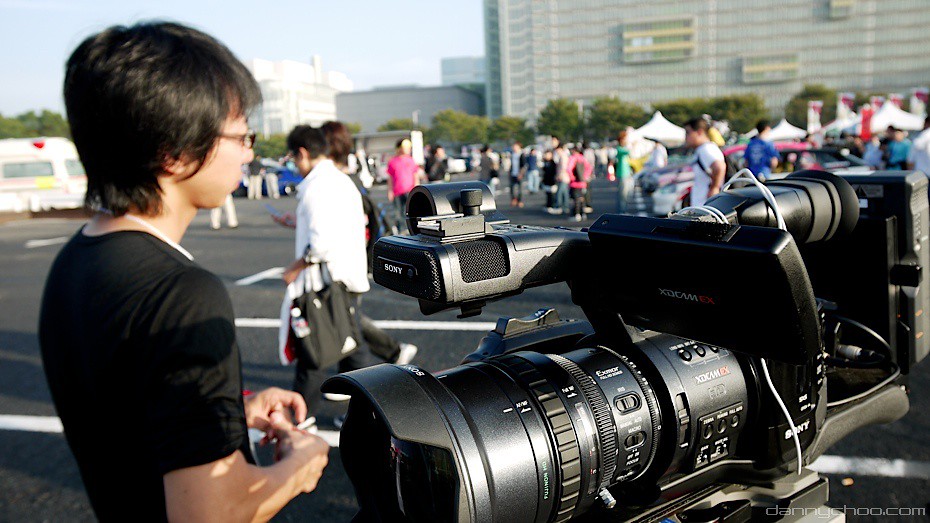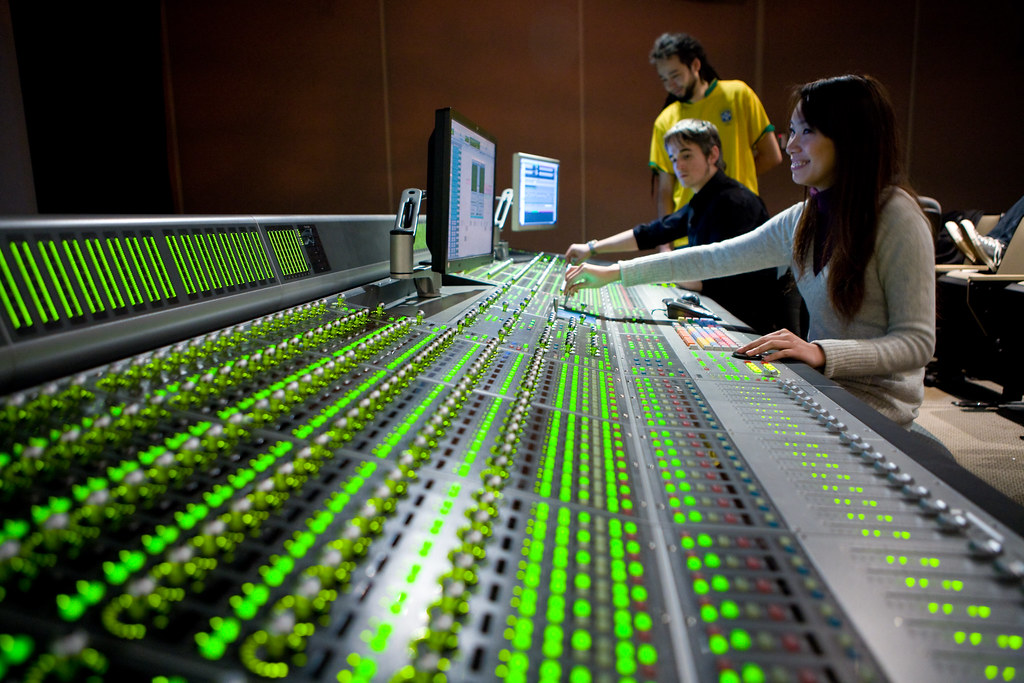Are you a music producer looking for the perfect laptop to enhance your creative process? Choosing the right laptop is crucial for a seamless music production experience. In this comprehensive guide, we will explore the key factors to consider when selecting a laptop for music production. From processor speed and RAM to storage capacity and software compatibility, we will provide you with expert insights and recommendations to help you make an informed decision. Whether you’re a professional music producer or an aspiring artist, this guide will equip you with the knowledge you need to choose a laptop that meets your specific music production needs. Let’s dive in and find the perfect laptop for your music production journey.
Table of Contents

Processor Speed for Music Production
The processor speed, also known as clock speed, refers to the rate at which a computer’s central processing unit (CPU) operates. It is measured in gigahertz (GHz) and determines the speed at which a computer can perform tasks.
What is Processor Speed?
The processor speed, or clock speed, indicates how quickly a computer can execute instructions and process data. It directly impacts the performance and efficiency of your laptop during music production tasks.
How Processor Speed Affects Music Production
Processor speed plays a critical role in music production by influencing the speed and responsiveness of your laptop. A higher processor speed allows for faster audio processing, reducing latency and ensuring smooth playback of virtual instruments and real-time effects. It also enables seamless multitasking, allowing you to work with multiple software and plugins simultaneously without performance limitations.
Recommended Processor Speeds for Music Production
When choosing a laptop for music production, it is advisable to opt for a processor with a minimum clock speed of 2.5 GHz. This ensures efficient handling of audio tasks, providing a smooth workflow during recording, editing, and mixing processes. If you work with large audio files or utilize resource-intensive plugins, consider a processor speed of 3.0 GHz or higher to maximize performance.
Remember, a faster processor speed contributes to improved productivity and enhances your overall music production experience.
Now, let’s proceed to the next section: RAM for Music Production.

RAM for Music Production
What is RAM?
Random Access Memory (RAM) is a type of computer memory that temporarily stores data while your laptop is running. It provides fast and temporary storage for the data that your laptop’s processor needs to access quickly.
How RAM Affects Music Production
RAM is a crucial component for smooth music production. It directly impacts your ability to work with multiple audio files, virtual instruments, and effects simultaneously. With more RAM, your laptop can handle larger and more complex projects without slowing down or experiencing performance issues.
Recommended RAM for Music Production
When choosing a laptop for music production, it is recommended to have a minimum of 8GB of RAM. This amount is suitable for basic music production tasks and smaller projects. However, if you frequently work with large audio files, use resource-intensive plugins, or require extensive multitasking, opting for a laptop with 16GB of RAM or higher is advisable. The additional RAM will provide more headroom for smooth and efficient music production workflows.
Now let’s move on to Section IV: Storage Capacity for Music Production.

Storage Capacity for Music Production
Storage capacity is a critical consideration when choosing a laptop for music production. It refers to the amount of data your laptop can store and is measured in gigabytes (GB) or terabytes (TB).
What is Storage Capacity?
Storage capacity determines how many audio files, project files, samples, and plugins you can store on your laptop. In music production, where audio files can be large, having sufficient storage capacity is essential to avoid running out of space and compromising your workflow.
How Storage Capacity Affects Music Production
Insufficient storage capacity can lead to storage limitations and hinder your ability to work efficiently. Running out of storage space may force you to delete files or constantly transfer them to external drives, which can be time-consuming and disrupt your creative flow. Adequate storage capacity ensures that you have enough room to store all your music project files, audio recordings, samples, and any additional software or plugins you use.
Recommended Storage Capacity for Music Production
To ensure smooth music production workflow, it is recommended to have a laptop with a minimum of 256GB of storage capacity. This capacity allows for storing a considerable amount of audio files and projects. However, if you work with a large library of audio files or handle complex projects, consider opting for a laptop with 512GB of storage capacity or higher. This will give you ample space to store your music files without constantly worrying about running out of storage.
Remember, having sufficient storage capacity not only allows you to store your music projects but also helps maintain organized and easily accessible files, making your music production process more efficient.
Now, let’s proceed to Section V: Graphics Card for Music Production.
IV. Graphics Card for Music Production
What is a Graphics Card?
A graphics card, also referred to as a video card, is an essential component of a laptop responsible for processing and rendering visual data. While primarily associated with tasks like video editing and 3D modeling, a graphics card can also have an impact on certain aspects of music production.
How Graphics Cards Affect Music Production
In music production, graphics cards are not as critical as they are in other creative fields. However, they can still contribute to the overall performance and visual experience. A dedicated graphics card can assist in tasks like visualizing waveforms, running visual plugins, and providing a smoother user interface.
Recommended Graphics Cards for Music Production
When selecting a laptop for music production, it is advisable to choose one with a dedicated graphics card. For most music production needs, a mid-range graphics card like the NVIDIA GeForce GTX 1650 will suffice. However, if you intend to work extensively with visual plugins or utilize complex visual effects, consider opting for a higher-end graphics card like the NVIDIA GeForce RTX 2060. These cards offer better performance and ensure smooth visuals during your music production workflow.
Now let’s move on to Section VI: Best Laptops for Music Production.

Best Laptops for Music Production
When it comes to choosing a laptop for music production, it’s important to consider your specific needs and budget. Here are three categories of laptops to help you find the best fit:
High-End Laptops
High-end laptops are designed for professional use and offer exceptional performance and advanced features.
Features and Specifications
- Processor Speed: Look for a powerful processor with a clock speed of 3.0 GHz or higher to handle resource-intensive tasks smoothly.
- RAM: Aim for at least 16GB of RAM to ensure seamless multitasking and efficient handling of large projects.
- Storage Capacity: Opt for a laptop with a storage capacity of 512GB or higher to accommodate your music files, software, and plugins.
- Graphics Card: Consider a laptop with a dedicated graphics card, such as the NVIDIA GeForce RTX 2060 or higher, for enhanced visual processing.
- Display Size: Choose a laptop with a 15-inch or larger display to comfortably work with complex audio editing interfaces and visual elements.
- Battery Life: Look for a laptop that offers at least 8 hours of battery life to keep you productive on the go.
Pros and Cons
| Pros | Cons |
|---|---|
| Excellent performance for demanding tasks | Higher price point |
| Advanced features and capabilities | Heavier and bulkier for portability |
| Large display for better visibility | Overkill for beginners or hobbyists |
| Long battery life for extended usage |
Mid-Range Laptops
Mid-range laptops strike a balance between performance and affordability, making them suitable for most music production needs.
Features and Specifications
- Processor Speed: Opt for a laptop with a processor speed of 2.5 GHz or higher to handle music production software efficiently.
- RAM: Aim for a minimum of 8GB of RAM to ensure smooth operation and the ability to handle multiple tasks simultaneously.
- Storage Capacity: Choose a laptop with at least 256GB of storage capacity to store your projects and files without running out of space.
- Graphics Card: Consider a laptop with a dedicated graphics card, such as the NVIDIA GeForce GTX 1650 or higher, for improved visual performance.
- Display Size: Look for a laptop with a display size of 14 inches or larger for a comfortable working experience.
- Battery Life: Consider a laptop with a battery life of 6 hours or higher to support extended periods of productivity.
Pros and Cons
| Pros | Cons |
|---|---|
| Good performance for most music production tasks | Limited advanced features |
| Affordable compared to high-end laptops | Smaller display size may require adjustments |
| Portable and lightweight for easy transportation | Not as powerful as high-end laptops |
| Decent battery life for on-the-go usage |
Budget Laptops
Budget laptops are a cost-effective option for beginners or those on a tight budget who still want to pursue music production.
Features and Specifications
- Processor Speed: Look for a budget laptop with a processor speed of 2.0 GHz or higher to handle basic music production needs.
- RAM: Aim for at least 4GB of RAM to ensure smooth operation of essential software and tasks.
- Storage Capacity: Choose a laptop with a minimum of 128GB of storage capacity to store your music files and software.
- Graphics Card: Budget laptops often have integrated graphics, which are sufficient for basic music production tasks.
- Display Size: Look for a laptop with a display size of 13 inches or larger for comfortable viewing.
- Battery Life: Consider a budget laptop with a battery life of 4 hours or higher for shorter sessions on the go.
Pros and Cons
| Pros | Cons |
|---|---|
| Affordable price for those on a tight budget | Limited performance for demanding tasks |
| Portable and lightweight for easy transportation | Limited features compared to higher-end laptops |
| Suitable for beginners starting out in music production | Smaller display size may require adjustments |
| Shorter battery life for extended usage |
Now that we’ve covered the best laptops for music production, let’s move on to Section VII: Digital Audio Workstations (DAWs) for Music Production.

Digital Audio Workstations (DAWs) for Music Production
A Digital Audio Workstation (DAW) is a powerful software application used for recording, editing, and producing audio. It serves as the central hub for musicians, producers, and engineers to create, mix, and master their music projects.
What is a DAW?
A DAW provides a comprehensive set of tools and features that enable users to manipulate audio tracks, apply effects, arrange compositions, and work with virtual instruments. It offers a user-friendly interface, allowing users to visually organize their audio files and edit them with precision.
How DAWs Affect Music Production
The choice of DAW can significantly impact your music production workflow. Each DAW has its unique interface, features, and capabilities, influencing how you interact with your music projects. Some DAWs excel in specific areas, such as electronic music production, while others offer advanced audio editing features suitable for professional mixing and mastering.
To ensure optimal performance and compatibility, it is essential to consider the system requirements of the chosen DAW. This ensures that your laptop meets the necessary specifications to run the software smoothly and handle complex projects without performance issues.
Popular DAWs and Their System Requirements
Here are some popular DAWs used in the music production industry, along with their recommended system requirements:
- Ableton Live:
- Operating System: Windows 10 or macOS 10.13 or later
- Processor: 64-bit Intel Core or AMD multi-core processor
- RAM: 8GB or higher
-
Disk Space: 10GB free disk space or more
-
Logic Pro X:
- Operating System: macOS 10.15.7 or later
- Processor: 64-bit Intel Core i5 processor or higher
- RAM: 8GB or higher
-
Disk Space: 64GB free disk space or more
-
Pro Tools:
- Operating System: Windows 10 or macOS 10.13.6 or later
- Processor: 64-bit Intel Core i5 processor or higher
- RAM: 16GB or higher
- Disk Space: 15GB free disk space or more
It is important to note that these are just a few examples, and there are many other DAWs available with varying system requirements. When choosing a DAW, ensure that your laptop meets or exceeds the recommended specifications to achieve optimal performance and a seamless music production experience.
Now, let’s move on to Section VIII: Music Production Software.
III. Music Production Software: Virtual Instruments
Virtual instruments are an essential component of music production software that accurately replicate the sounds and characteristics of real instruments. These software plugins offer a wide range of virtual instruments, including pianos, guitars, drums, synthesizers, and orchestral instruments. They provide musicians and producers with limitless creative possibilities, enabling them to compose, arrange, and produce music with incredible precision and realism.
Some of the most renowned virtual instrument software in the industry include:
-
Native Instruments Komplete: Komplete is a comprehensive collection of virtual instruments, sample libraries, and effects. It offers a vast array of sounds, from classic synthesizers to orchestral instruments, suitable for various music genres.
-
Spectrasonics Omnisphere: Omnisphere is renowned for its expansive sound library, featuring an extensive range of presets and unique soundscapes. It combines traditional synthesizer techniques with innovative sampling to deliver rich and immersive sounds.
-
Arturia V Collection: V Collection is a bundle of meticulously modeled vintage synthesizers and keyboards. It faithfully captures the analog warmth and character of iconic instruments like the Minimoog, ARP 2600, and Yamaha DX7.
When selecting a laptop for music production, it is crucial to consider the system requirements of these virtual instruments. They can be resource-intensive, requiring substantial processing power and RAM for seamless performance. Ensure that your laptop meets or exceeds the recommended specifications provided by the virtual instrument manufacturers to ensure optimal performance and an uninterrupted creative workflow.
Now, let’s move on to Section IV: Storage Capacity for Music Production.

Additional Considerations: Durability
Durability is a crucial aspect to consider when choosing a laptop for music production. The demands of music production require a laptop that can withstand constant use and potential mishaps. To ensure the longevity of your device, here are some key factors to keep in mind:
-
Sturdy Construction: Look for laptops that feature robust build quality. Opt for models with durable materials like aluminum or carbon fiber cases. These materials provide excellent protection against accidental bumps and drops, ensuring your laptop remains in good condition.
-
Reliable Warranty: Consider purchasing a laptop that comes with a warranty or an extended protection plan. Having warranty coverage safeguards you against unexpected hardware failures or damages. It provides peace of mind and can save you from expensive repairs or replacements in the future.
-
Spill-Resistant Keyboards: Accidental spills are a common occurrence during music production sessions. Look for laptops with spill-resistant keyboards that can withstand liquid spills to prevent damage to the internal components. This feature adds an extra layer of protection and minimizes the risk of downtime due to liquid-related accidents.
-
Shock Absorption: Music production often involves traveling or taking your laptop on the go. Look for laptops with built-in shock absorption features or consider using protective cases to safeguard your device from impacts during transportation.
-
Heat Dissipation: Intensive music production tasks can cause laptops to generate significant heat. Ensure that the laptop you choose has effective heat dissipation mechanisms, such as well-designed cooling systems or heat vents. This helps in maintaining optimal performance and prevents overheating issues.
By considering these durability factors, you can select a laptop that is well-equipped to handle the demands of music production and withstand the rigors of daily use.
Now, let’s proceed to the next section: Battery Life.
IX. Additional Considerations: Display Size and Resolution
When choosing a laptop for music production, it’s important to consider the display size and resolution. These factors can greatly impact your workflow and overall experience.
A. Display Size
Opting for a larger display size provides more screen real estate, allowing you to have multiple audio files, virtual instruments, and plugins open simultaneously. This enhances your productivity by reducing the need for constant scrolling or switching between windows. A display size of 15 inches or larger is generally recommended for music production tasks.
B. Resolution
In addition to display size, the resolution of your laptop’s screen is equally important. A higher resolution ensures sharper and more detailed visuals, making it easier to spot minute details in audio waveforms, mixer controls, and plugin interfaces. A minimum resolution of 1920×1080 (Full HD) is recommended for music production to ensure clarity and precision in your work.
Remember, a larger display size coupled with a higher resolution can significantly enhance your music production experience by providing ample space for efficient multitasking and delivering crisp visuals for precise editing and mixing.
Now, let’s move on to the next section: Portability.

Additional Considerations: Portability
When choosing a laptop for music production, portability is an important factor to consider, especially if you plan on traveling or performing on the go. A lightweight and compact laptop allows for greater mobility and convenience. Here are some key points to keep in mind:
-
Weight: Opt for a laptop that weighs 4 pounds or less. This lightweight design ensures that your laptop won’t weigh you down during travels or live performances.
-
Compact Size: Look for a laptop with a smaller form factor, such as a 13-inch or 15-inch display. This makes it easier to carry and fit into your backpack or travel case.
-
Durability: Consider laptops that are built to withstand the rigors of travel. Look for features like reinforced chassis, shock-absorbent materials, and spill-resistant keyboards to ensure your laptop can handle the occasional bumps and accidents.
-
Battery Life: Portability is enhanced by a long-lasting battery. Look for laptops with a battery life of at least 6-8 hours, so you can work on your music projects without constantly worrying about finding a power outlet.
Remember, while prioritizing portability, it’s essential to strike a balance with performance and features that meet your music production requirements. Now that we’ve covered portability, let’s move on to the next section: Battery Life.
IX. Additional Considerations
A. Battery Life
When choosing a laptop for music production, it’s important to consider the battery life, especially if you intend to use it for extended periods without access to a power source. A longer battery life ensures uninterrupted music production sessions and enhances portability.
Look for a laptop that offers a battery life of at least 6 hours or higher. This will provide you with sufficient time to work on your music projects without worrying about running out of power. Keep in mind that resource-intensive tasks in music production can consume more power, so opting for a laptop with an extended battery life is beneficial.
Consider laptops that feature energy-efficient components, such as power-saving processors and display panels, as these can help maximize battery life. Additionally, look for laptops that offer quick charging capabilities, allowing you to recharge your battery rapidly during breaks.
Remember, longer battery life grants you the flexibility to work on your music projects anywhere, whether you’re in a studio, on-the-go, or in a creative environment. It’s an essential consideration for a seamless music production experience.
Now, let’s proceed to Section X: Conclusion.
Insider Tips
Here are some insider tips to consider when choosing a laptop for music production:
-
Connectivity with Thunderbolt 3 Ports: It’s worth considering purchasing a laptop equipped with Thunderbolt 3 ports. These ports allow for high-speed data transfer and can be used to connect external hardware, such as audio interfaces and MIDI controllers. This ensures seamless integration of your music production setup.
-
High-Quality Speakers: Look for laptops with high-quality built-in speakers. While headphones are essential for critical listening, having good speakers can be a valuable tool for music production and mixing. They allow you to get a better sense of how your music sounds in different environments.
-
Choosing the Right DAW: When selecting a digital audio workstation (DAW), consider the workflow and interface that work best for you. Each DAW has its own unique features, strengths, and weaknesses. Finding the right fit for your creative process can greatly enhance your productivity and efficiency in music production.
-
Invest in Quality Headphones: Don’t overlook the importance of a good pair of headphones for music production. Look for headphones with a flat frequency response and accurate sound reproduction. This ensures that your mixes translate well to other listening environments, such as car stereos or professional studio monitors.
These insider tips can help you make informed decisions and optimize your music production setup. Now, let’s move on to Section IV: Storage Capacity for Music Production.

Conclusion
Choosing the right laptop for music production is crucial in order to achieve optimal results. When making your selection, it is important to consider several key factors that will greatly impact your music production experience. These factors include:
-
Processor Speed: Opt for a laptop with a powerful processor that can handle the demands of music production. Look for a quad-core or higher processor with a base clock speed of at least 2.5 GHz. This will ensure smooth performance and efficient multitasking.
-
RAM: Adequate RAM is essential for seamless music production. Aim for a minimum of 8GB, but consider 16GB or more for larger projects or resource-intensive plugins.
-
Storage Capacity: Choose a laptop with sufficient storage capacity to accommodate your music projects, software, and sample libraries. Solid-state drives (SSD) are recommended for faster data access and improved performance.
-
Graphics Card: While not as critical as other components, a dedicated graphics card can enhance the visual aspects of music production software. Look for a laptop with a dedicated GPU if you plan to work with graphics-intensive plugins or visuals.
-
Digital Audio Workstations (DAWs) and Music Production Software: Ensure that your chosen laptop is compatible with the DAWs and music production software you intend to use. Check the system requirements of your preferred software and choose a laptop that meets or exceeds those specifications.
-
Additional Considerations: Consider factors such as durability, display size and resolution, portability, and battery life. These aspects can greatly impact your overall music production experience and convenience.
By carefully considering these factors and following the guidelines and recommendations provided, you will be well-equipped to select the best laptop for music production. With the right tools at your disposal, you can take your music to new heights and unleash your creative potential.
Check out our other content for more tips and insights on music production equipment and techniques to further enhance your musical journey!
Questions
Who should choose a laptop for music production?
Music producers and musicians seeking a portable music production solution.
What factors should I consider when choosing a laptop?
Processor speed, RAM, storage capacity, graphics card, and software compatibility.
How does processor speed affect music production?
Faster processor speeds enable smooth audio processing and multitasking.
What is the recommended RAM for music production?
A minimum of 8GB of RAM is recommended for seamless music production.
How does storage capacity impact music production?
Sufficient storage capacity ensures ample space for music files and software.
What if I have a limited budget for a music production laptop?
Budget-friendly options are available with basic specifications for beginners.


